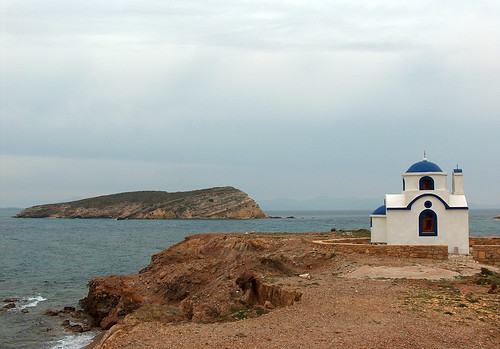The suras of the Koran can be separated into two basic groups: Mecca and Medina. Proper Koranic scholars divide it up further, but there's no real need. The division of the suras is not obvious, because early in the Koran's history, somebody (an engineer, probably) decided to arrange them by length, from longest to shortest. So the earlier Mecca writings are shuffled in with the later Medina writings.
In Mecca, Mohammed's writings were somewhere between Jesus and Karl Marx. Everybody can get along, nobody should be poor, etc. He said he was transcribing God's words, and I believe he believed that. I, for one, have had days where the words just flow out of my pen seemingly without imput from my brain. I've called it a muse, but if you're writing religion, it might as well be an angel.
In his early days, Mohammed's followers were the poor and downtrodden. After all, he was promising them a better life. A new world order. Everybody's equally rich.
As for what he thought of different religions, here's sura 63: "O ye unbelievers, I worship not that which ye worship, Nor are ye worshipping that which I worship. Never shall I be a worshipper of what ye worship, Nor will ye be worshippers of that which I worship. Ye have your religion, and I have my religion." We can all get along.
But then he gained military and political power. He fled to Medina and became the city's ruler. His writings changed tone. For some reason, God began caring more about civil administration. The Medina writings are the basis of sharia law. I would guess that Mohammed no longer had his muse at this point, but had to keep writing to basically finish what he started.
And what did God now think of unbelievers? Sura 4.74: "Therefore let those fight in the way of Allah, who sell this world's life for the hereafter; and whoever fights in the way of Allah, then be he slain or be he victorious, We shall grant him a mighty reward." Sura 4.76: "Those who believe fight in the way of Allah, and those who disbelieve fight in the way of Satan. Fight therefore against the friends of Satan; surely the strategy of the Shaitan is weak."
There are many inconsistancies in the Koran, on a variety of subjects. Apparently the people in charge decided long ago that God was capable of changing his mind, and so later writings supercede earlier writings. This helped them out, because they didn't have to give up their power per Mohammed's communist Mecca writings. But this also means that the jihadists today completely ignore the love-thy-neighbor parts of the Koran.
In the 1950's, a Sudanese man named Mahmoud Muhammad Taha espoused the concept that Muslims should reject the Medina rules and return to the Mecca teachings, and how about some democracy while we're at it? But Sudan has gone steadily downhill since then. Taha was executed as a heretic in 1985. Arab nations don't seem to have changed much in the past 21 years. . .


































